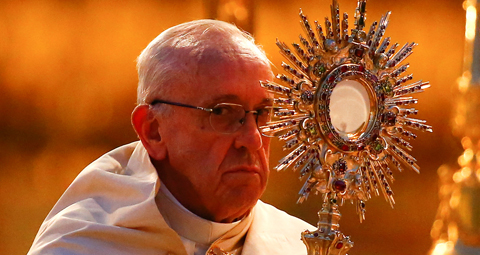July 14 | ![]() 0 COMMENTS
0 COMMENTS ![]() print
print

Pope Francis announces new path to sainthood
Pope Francis has declared a new category of path to sainthood called ‘offering of life,’ in which a person has died prematurely through an offering of their life for love of God and neighbour.
Though similar to martyrdom, this definition fits those servants of God who have in some way given up their life prematurely for charity, though the circumstances may fall outside the strict definition of martyrdom, which requires the presence of a persecutor.
The changes were issued in a Motu proprio on July 11, which formally added the particular case to the paths by which a person under investigation for beatification may be discerned to be worthy, in addition to the traditional three paths: martyrdom, a life of heroic virtue and the very rare ‘exceptional cases.’
In the apostolic letter, Pope Francis wrote that ‘they are worthy of special consideration and honour, those Christians who, following in the footsteps and teachings of the Lord Jesus, have voluntarily and freely offered their lives for others and have persevered until death in this regard.’
“It is certain that the heroic offering of life, suggested and supported by charity, expresses a true, full and exemplary imitation of Christ, and therefore deserves the admiration that the community of the faithful usually reserves to those who have voluntarily accepted the martyrdom of blood or have exercised in a heroic degree the Christian virtues,” the Pope continued.
The document is titled ‘maiorem hac dilectionem,’ or ‘greater love than this, after the verse from the Gospel of John which says: “No one has greater love than this: to lay down one’s life for one’s friends.”
There are four criteria this case must meet in order to be ‘valid and efficacious’ for the beatification of a servant of God.
The first is that it is a free and voluntary offer of life and heroic acceptance’—for the sake of charity—of a certain and non-lengthy death.
The second is that there must be a ‘close relation’ between ‘the offering of one’s life and the premature death of the one who offers it.’
There also must have been the exercise, at least of an ordinary level, of the Christian virtues before the offering of life and up until the moment of death, as well as the existence of signs of and a reputation of holiness, at least after death.
And finally, unlike with martyrdom, the usual requirement of a confirmed miracle springing from the intercession of the servant of God for beatification, after his or her death, must be in place.











